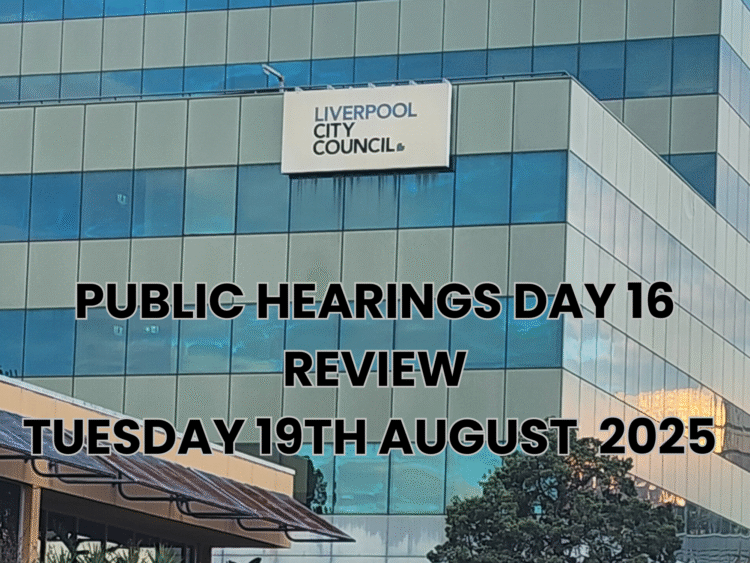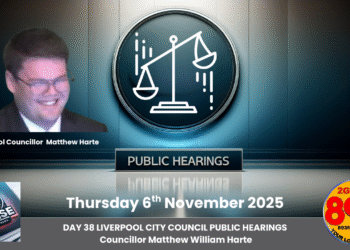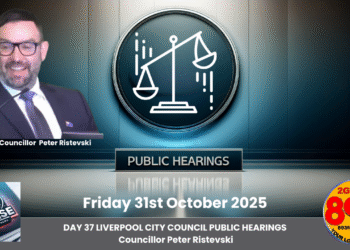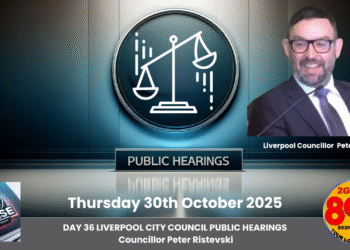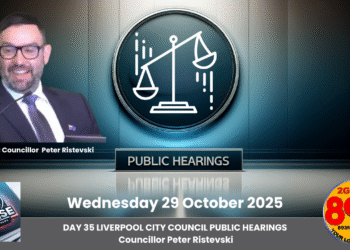Sandie Morthen’s Testimony: Union Role and Council Interactions
Ms Morthen, who identified herself as Sandra Marie Morthen, testified that she has worked for the United Services Union for nearly 16 years. Initially serving as an organiser for the Metropolitan Local Government team, she covered councils including Blacktown, Campbelltown, Camden, and Liverpool. She recently transitioned to a managerial role overseeing energy, utilities, private sector, and airlines, starting in late May 2025.
As an organiser, Ms Morthen explained her duties involved representing union members in meetings and consultations, as well as growing membership. She described the distinction between “indoor” and “outdoor” employees at Liverpool City Council, noting that outdoor workers are typically based at council yards like the Rose Street depot, while indoor workers are often in administration buildings, libraries, or early education centres. The USU’s coverage, she clarified, extends to all positions in local government, including CEOs, under the Local Government (State) Award.
Ms Morthen outlined the grievance process for union members, which starts with a verbal complaint to a leader or HR, escalates to a written grievance form if unresolved, and can further progress to the Industrial Relations Commission if necessary. She noted that the term “industrial grievances” likely encompasses both internal grievances and formal disputes before the commission.
Focus on April 2024: Tensions with CEO John Ajaka
The testimony honed in on events around April 2024, particularly Ms Morthen’s interactions with then-CEO John Ajaka, who was also a USU member. She recalled that Mr Ajaka contacted her by phone a few days prior to 22 April 2024, requesting a meeting in his office on that Monday morning at Civic Place. Ms Morthen confirmed it was a one-on-one discussion.
During the meeting, Mr Ajaka expressed concerns about an altercation where he admitted to telling Mayor Ned Mannoun to “shut the F up” during a heated discussion the previous week. He contextualised the incident as stemming from his refusal to cut 150 jobs as allegedly requested by the mayor. The meeting in question reportedly involved the mayor, deputy mayor, and Farooq Portelli, a senior council figure.
Ms Morthen testified that Mr Ajaka was worried his job might be at risk due to this incident, compounded by an already strained relationship with Mayor Mannoun. She noted that this tension was widely rumoured among council employees and had been discussed with her by Mr Ajaka two to three weeks prior to the April meeting. However, she had not heard of any specific proposal to cut jobs before this conversation, nor did Mr Ajaka mention plans to eliminate directors, managers, or non-core employees at that time, though she later learned of such proposals from other sources.
Union Response and Member Communication
Following the meeting, Ms Morthen stated she lacked the authority to take immediate action on Mr Ajaka’s concerns. Instead, she contacted her manager, Steve Donley, who oversees all metropolitan councils for the USU. Mr Donley was already aware of her meeting with Mr Ajaka, as she had to withdraw from a scheduled team activity to attend. During their phone call, Ms Morthen relayed the information about the potential cut of 150 jobs, attributing the source to her discussion with the CEO. They discussed arranging member meetings the following day to inform union members of the situation, with some strong language exchanged during the conversation due to the gravity of the issue.
Subsequently, Ms Morthen reached out to Rafael Catanzareti, a head delegate for outdoor workers at Liverpool City Council, meeting him for breakfast at Lilys restaurant in Prestons, within the council area. She explained that the USU had around 22 delegates at Liverpool at the time, with head delegates typically split between indoor and outdoor staff. The purpose of this meeting was not detailed in the provided transcript segment but likely related to disseminating information about the job cut concerns to union representatives.
Broader Implications
Ms Morthen’s evidence painted a picture of underlying friction between senior council figures, particularly between the CEO and the mayor, which was common knowledge among employees. Her testimony also highlighted the union’s role in responding to potential job losses, a sensitive issue for the workforce. The inquiry continues to probe these interpersonal and operational dynamics at Liverpool City Council, raising questions about governance, communication, and staff morale.
The hearing adjourned with further examination expected in subsequent sessions, as the inquiry seeks to unpack the broader context of these internal conflicts and their impact on council operations with Sandie Morthen expected to resume giving testimony tomorrow.









